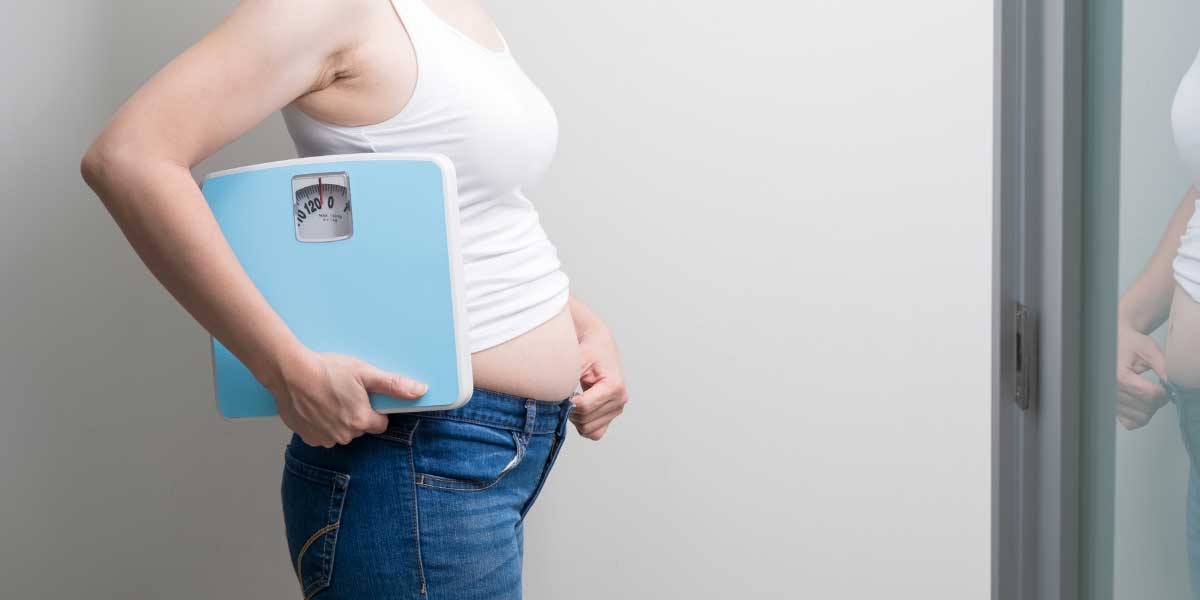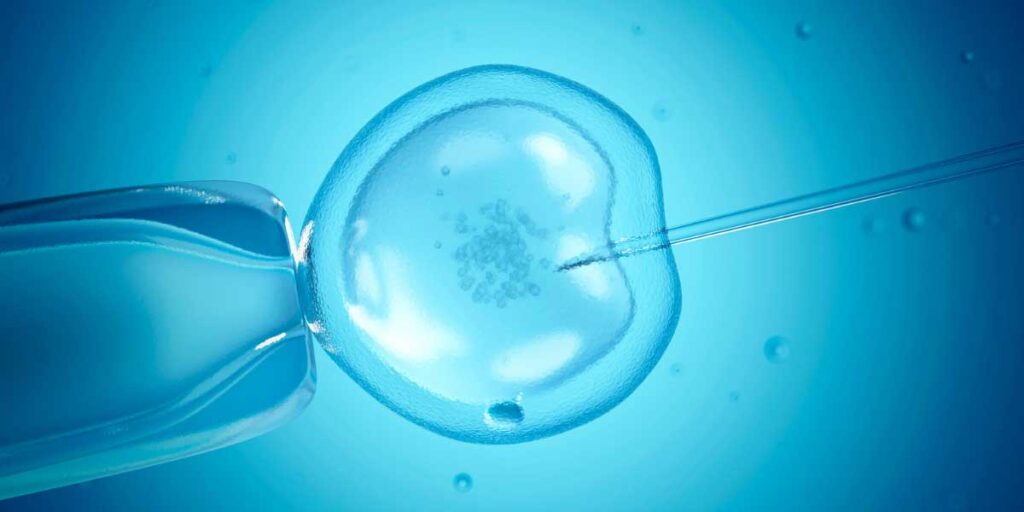PCOS, known as Polycystic Ovarian Syndrome, is a hormonal disorder affecting many women in their childbearing years (15-44 years).
The effects of the syndrome can start around puberty and can progress throughout the reproductive years.
It is characterized by a lack of ovulation, high levels of male hormones (testosterone), and many fluid-filled sacs (cysts) in the ovaries.
It is one of the most common causes of infertility in women.
Almost 95% of women seeking ovulatory fertility treatment have PCOS. Many of these women only found out they had PCOS as they underwent fertility treatment.
Similarly, Miss Lee in her mid-30s, herself has been finding it difficult to get pregnant after getting married 5 years ago. In order to find a solution, she consulted a gynaecologist.

The symptoms she shared with the doctor suggested that she likely has a condition called PCOS.
What are the symptoms of PCOS?
The hormonal imbalance in PCOS can lead to a constellation of symptoms. Examples:
Weight gain
90% of women with PCOS have obesity.
There are many reasons why weight gain occurs in women with PCOS.
One reason would be insulin resistance. In this condition, the bodies of women with PCOS are unable to respond to insulin secretions after eating. This leads to persistently high levels of sugar in the blood.
This can trigger the release of androgens, a male hormone that can lead to weight gain.
Irregular periods
Women with PCOS often miss their periods. This has been one of the major issues faced by Miss Lee too. She just couldn’t find her ovulation period thus making conceiving even more difficult.

This is because of the imbalance of hormones that regulate the menstrual cycle.
The frequency of irregularity differs from person to person.
Some women may have less than 8 periods a year and some have very frequent periods every 21 days. As a result of this irregularity, women are unable to ovulate.
Too much hair growth
Women with PCOS often have high levels of androgens, a male hormone in their body. This leads to the growth of hair in a similar fashion to that of men.
Most noticeably, women will notice hair growth on their chin and face, termed “hirsutism”.
Acne
The high levels of androgens can cause excess sebum secretion on the skin of the face.
This favours the growth of a type of bacteria that can cause acne.
Skin hyperpigmentation
Some women with PCOS will notice the development of raised, velvety areas on skin folds such as the neck and armpits.
These lesions are described as “dirty-looking” and is linked to insulin resistance.

As Miss Lee began to understand what PCOS was, she realized that infertility wasn’t the only issue that she was facing. It came with other health-related problems too.
Complications of PCOS
If left untreated, many women with PCOS often develop other conditions that can lead to an increased risk of adverse health. Examples are:
Infertility
This is a major problem for women with PCOS in their childbearing age.
Due to the irregular menstruation and periods where no ovulation occurs, it can be difficult to conceive.
Type II Diabetes Mellitus
The insulin resistance coupled with weight issues in PCOS women can significantly increase the risk of developing diabetes.
Women with PCOS are also at a higher risk of developing gestational diabetes mellitus during pregnancy.
Sleep apnea
In this condition, the airway may close during sleep, leading to periods where you are unable to breath (apnea).
People who are obese often have more tissue near their airway. This is seen in women with PCOS as many struggles with their weight.
Cardiovascular disease
Women with PCOS are more likely to have diabetes and hypertension than women without PCOS of the same age. This can lead to an increased risk of developing heart disease and stroke.
A study showed that women with PCOS have an almost sevenfold higher risk of getting a heart attack than their peers without PCOS.
This could be because women with PCOS struggle with obesity, especially at the waist. These complications may sound very frightening. However, they can be managed with lifestyle changes and medication.
Managing PCOS
Many studies have shown that obesity is a compounder of many of the effects of PCOS.
An obese individual has a BMI of over 30 kg/m2.
It is associated with many adverse health risks which are seen in a large subset of women with PCOS.
It is known that the prevalence of obesity is high among infertile women.
Obesity is associated with difficulty ovulating, menstrual disorders, and miscarriage.

If an obese woman were to undergo IVF (In vitro fertilization), the chances of live birth are reduced by almost a fifth compared to normal-weight individuals.
The link between obesity and infertility is clear. It is shown that a modest loss of 10% of body weight (A 100 kg woman losing 10kg) can help to improve the chances of conceiving by making menstrual cycles more regular and increasing ovulation.
Obesity also leads to other health risks such as diabetes mellitus, hypertension, and heart disease. This is common in women with PCOS as the condition predisposes them to weight gain.
Hence, weight loss is often prescribed for women with PCOS.
Therefore, Miss Lee was given a few options to consider by her doctor:

Lifestyle changes
Changes in the diet, exercise, or behaviour are considered the first-line treatment to manage problems with infertility and complications such as diabetes and heart disease.
Women with PCOS are encouraged to eat healthfully and exercise regularly to promote weight loss.
This can help reduce insulin and androgen levels, which cause many of the effects seen in PCOS.
Medical therapies
Some individuals may not respond to lifestyle changes only. Some may need additional therapy to manage certain complications of PCOS.
Metformin is a medication used to reduce insulin resistance and help control diabetes.
In women with PCOS wanting to conceive, Clomiphene citrate is also used to induce ovulation.

After understanding her options, Miss Lee is considering bariatric surgery as one of her viable options as she had gone through a series of lifestyle changes but it did not work. She wasn’t too keen on taking medications either. Plus, she has trying been trying to conceive for the last 5 years. She did not want to wait any longer.
Hence, she was referred to a bariatric surgeon by her gynaecologist for an alternative solution.
Bariatric surgery
This type of surgery is designed to help obese individuals lose large amounts of weight in a shorter period. It is a surgery that requires few incisions and has grown in popularity among women with PCOS.
Although there are limited studies on PCOS and bariatric surgery, they are promising.
A study has shown that 10 out of 12 women with PCOS have spontaneous ovulation after the surgery, and almost 70% have regained normal menstrual function.
Although, as surgical intervention, it also comes with a small chance of risk such as bowel obstruction. Despite this, the benefits have the potential to outweigh the risks.
Women with PCOS are encouraged to speak to their doctors to find out if bariatric surgery can help them achieve their goals.
In conclusion, PCOS is a condition that affects many women, leading to difficulties in getting pregnant and cardiovascular diseases. Despite so, there is a light at the end of the tunnel. Weight loss can be beneficial for women with PCOS.
Do speak to a doctor to discuss the options available!
References:
- https://www.ncbi.nlm.nih.gov/pmc/articles/PMC4433074/
- https://www.iomcworld.org/articles/prevalence-and-characteristics-of-metabolic-syndromeamong-polycystic-ovarian-syndrome-patients-inmalaysia.pdf
- https://theconversation.com/how-does-being-overweight-affect-my-fertility-95224
- https://www.ncbi.nlm.nih.gov/pmc/articles/PMC4456969/
- https://www.ncbi.nlm.nih.gov/pmc/articles/PMC3334389/